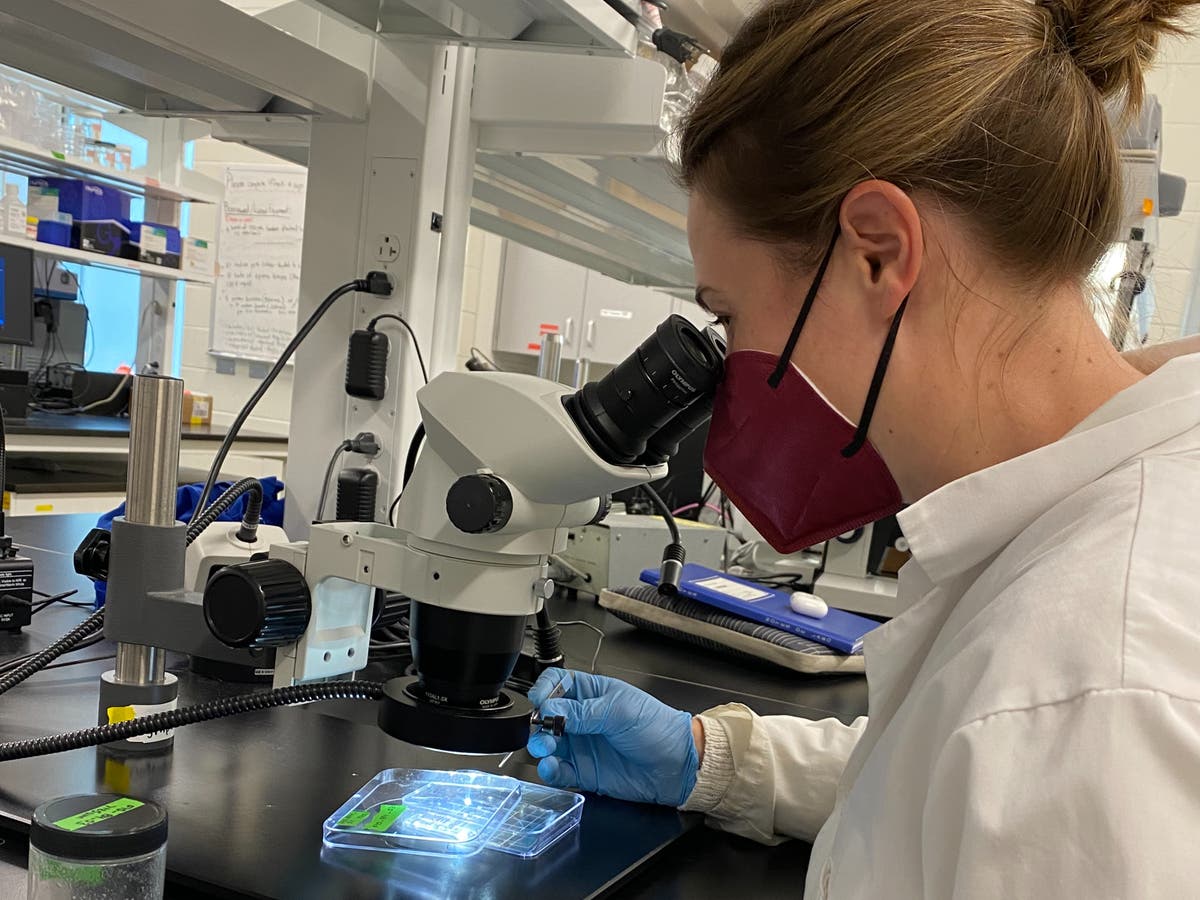Land-based protein sources like chicken, beef, pork and tofu contain as many microplastics as fishes, study finds
Microplastics have been found in nearly 90 per cent of sources of proteins, including meat and plant-based, according to a new study that serves as a startling reminder of how prolific plastic pollution has become.
While the presence of microplastics in commercial fish and shellfish has been known for long, there has been little research into terrestrial protein sources like beef and chicken that make up a large part of the Western diet.
A team of researchers studied samples from 16 different protein types destined for American consumers, including seafood, pork, beef, chicken, tofu, and three different plant-based meat alternatives. They found microplastic particles in 88 per cent of protein food samples tested.
Haha sucks for you carnivores, my hippie ass…
and tofu
DAMNIT I GOTS THE PLASTIC GUT FROM BEAN BRICKS!!!
Found in humans, too
Welp, time to run the chicken through the reverse osmosis system too.
Rolls up sleeves
my RO system uses plasic tubes and plastic housings.
RO provides only the purest of microplastics and the finest BPA.
I’m sure our governments and food manufacturers are hard at work addressing this critical issue. /s
deleted by creator
From limited understanding, it causes inflammation as your body reacts to any amount of stimulis.
And since we cant digest them, our bodies try to fight it, causing inflammation
the diversity of microplastics is enormous
most of it is from the plastic that they wrao bread in because they feed it to animals as is
Given my druthers, I would rather not find out the hard way.
Yes it’s not good, but research is lacking.
This contamination occurs via multiple sources, including primary microplastics (including synthetic materials) and secondary microplastics (derived from the breakdown of larger plastic particles). Microplastic contamination can have both beneficial and detrimental effects on soil properties.
Additionally, microplastics have been shown to interact with a wide array of contaminants, including pesticides, persistent organic pollutants, heavy metals, and antibiotics, and may act as a vector for contaminant transfer in terrestrial environments. Microplastics and their associated chemicals can be transferred through food webs and may accumulate across multiple trophic levels, resulting in potential detrimental health effects for humans and other organisms.
There is microplastics in everything. It’s in our clothes, our food, the air we breathe. Not a thing you can do to get away from it.
Well that’s a defeatist attitude
You can stop breathing
You’re right I should be like you and just wish
There is microplastics in everything. It’s in our clothes, our food, the air we breathe. Not a thing you can do to get away from it.
Well that’s a defeatist attitude
You can stop breathing
You’re right I should be like you and just wish
There is a range of options available to us between “stop breathing” and “just wish”.
Granted, none of them are easy options, but still, they are options.
Natural fibers will have less microplastics than synthetics like polyester (literally plastic fibers). Eating a predominantly plant based diet (actual fruit and veg, not imitation meat) with little to no processed foods from the center aisles will mean ingesting fewer microplastics. Switching from bottled water to filtered will reduce the amount of microplastics you drink. Stop using tupperwares and saran wrap immediately and instead use glass containers whenever possible.
There’s no way to get rid of them completely, but there are ways to mitigate your exposure.
Eating a predominantly plant based diet
There is no significant difference between micro plastic contamination in meat or plants:
https://www.greenpeace.org/eastasia/blog/6016/3-everyday-foods-that-contain-microplastics/
That is an insane number. Wow.
Honestly I would be disappointed if there weren’t microplastics in my burgers. It’s what the body craves
theyre flavour particles
I prefer the Kroger/Target Bag Spice blend
2020 - S05E10 - Where’s the Beef?
Microplastics have been found in nearly 90 per cent of sources of proteins, including meat and plant-based, according to a new study that serves as a startling reminder of how prolific plastic pollution has become. While the presence of microplastics in commercial fish and shellfish has been known for long, there has been little research into terrestrial protein sources like beef and chicken that make up a large part of the Western diet. A team of researchers studied samples from 16 different protein types destined for American consumers, including seafood, pork, beef, chicken, tofu, and three different plant-based meat alternatives. They found microplastic particles in 88 per cent of protein food samples tested. - TV-MA, 54 mins
SD, SHD, UHD, Dolby Vision; Dolby Stereo, Dolby Surround, Dolby Atmos










